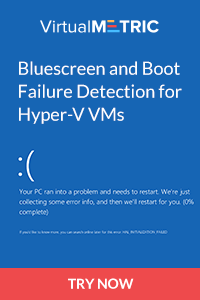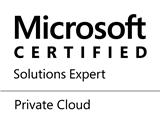
Categories

Sponsors


Archive
 Blogroll

Badges


Community

|

Posted in Windows Powershell | 4 Comments | 23,130 views | 27/03/2013 11:03
When you remove an Exchange Mailbox from DAG or your environment, msExchHomeServerName attribute remains same. You may get problem when you try to update user mailbox due to non exist Mailbox Server. In order to achieve this problem, you should get affected mailboxes first, then you should update them with correct mailbox server name.
First get all affected mailboxes:
$Mailboxes = Get-Mailbox -ResultSize Unlimited | where {$_.Servername -eq "Old_Mailbox_Name"} |
$Mailboxes = Get-Mailbox -ResultSize Unlimited | where {$_.Servername -eq "Old_Mailbox_Name"} Update them with this:
1
2
3
4
5
6
7
| foreach ($Mailbox in $Mailboxes)
{
Write-Host $Mailbox.Name
$MBX = $null;
$MBX = Get-Mailbox -Identity $Mailbox
Set-Mailbox $MBX -Database $MBX.Database -Confirm:$false -Force -Verbose
} |
foreach ($Mailbox in $Mailboxes)
{
Write-Host $Mailbox.Name
$MBX = $null;
$MBX = Get-Mailbox -Identity $Mailbox
Set-Mailbox $MBX -Database $MBX.Database -Confirm:$false -Force -Verbose
} After that process, all msExchHomeServerName will be corrected.

Posted in Windows Powershell | No Comment | 2,139 views | 23/03/2013 08:30
Merhaba,
Portal yapımı sırasında kullandığım kodlar aşağıda:
New-SQLDatabaseBackup:
1
2
3
4
5
6
7
8
9
10
11
12
13
14
15
16
17
18
19
20
21
22
23
24
25
26
27
28
29
30
31
32
33
34
35
36
37
38
39
40
41
42
43
44
45
46
47
48
49
50
51
52
53
54
55
56
57
58
59
60
61
62
63
64
65
66
67
68
69
70
71
72
73
74
75
76
77
78
79
80
81
82
83
84
85
86
87
88
89
90
91
92
93
94
95
96
97
98
99
100
101
102
103
104
105
106
107
108
109
110
111
112
113
114
115
116
| function New-SQLDatabaseBackup {
param (
# Instance Name
[Parameter(
Mandatory = $true,
HelpMessage = 'Instance Name of SQL Server.')]
$ServerInstance,
# Database Name
[Parameter(
Mandatory = $true,
HelpMessage = 'Database Name.')]
$Database,
# Debug Mode
[Parameter(
Mandatory = $false,
HelpMessage = 'Debug Mode')]
[switch]$DebugMode = $false
)
# Enable Debug Mode
if ($DebugMode)
{
$DebugPreference = "Continue"
}
else
{
$ErrorActionPreference = "silentlycontinue"
}
# Date and Time Calculation
$JobTime = Get-Date -format HHmm
$HourString = (Get-Date).ToString("HH")
$MinuteString = (Get-Date).ToString("mm")
$DayString = (Get-Date).ToString("dd")
$MonthString = (Get-Date).ToString("MM")
$YearString = (Get-Date).ToString("yyyy")
Write-Debug "Jobtime: $JobTime"
# Log File
$LogFile = "C:\Program Files\Microsoft SQL Server\MSSQL11.SYSADMINSQL\MSSQL\Backup\backup_logs.txt"
# Backup File
$BackupFile = "C:\Program Files\Microsoft SQL Server\MSSQL11.SYSADMINSQL\MSSQL\Backup\" + $Database + "_" + $Jobtime + "_" + $DayString + $MonthString + $YearString + ".bak"
# XML Output Path
$XMLOutputPath = "C:\reports.xml"
# Backup Database
$BackupSQLDB = Backup-SqlDatabase -Database $Database -ServerInstance $ServerInstance -Checksum -Initialize -CompressionOption On -BackupFile $BackupFile
# Get Backup Size
$TestBackup = Test-Path -Path $BackupFile
if ($TestBackup)
{
$BackupSize = (Get-Item $BackupFile).Length / 1MB
}
else
{
$BackupSize = "0"
}
# Backup Status
if ($TestBackup)
{
$Status = "OK"
}
else
{
$Status = "Failed"
}
# Log Content
$LogContent = $Database + ";" + $HourString + ":" + $MinuteString + " " + $DayString + "." + $MonthString + "." + $YearString + ";" + $BackupSize + ";" + $Status
# Log Backup Job
Add-Content -Value $LogContent -Path $LogFile
# Get Log Output
$LogOutput = Get-Content -Path $LogFile
# XML Header
$BackupXML = "<?xml version=""1.0"" encoding=""utf-8""?>`n"
$BackupXML += "<Result>`n"
$BackupXML += " <Code>1</Code>`n"
$BackupXML += " <Message>Operation is completed</Message>`n"
foreach ($LogContent in $LogOutput)
{
$Log = $LogContent.Split(";")
$DBName = $Log[0]
$BackupDate = $Log[1]
$BackupSize = $Log[2]
$BackupSize = ([math]::round(($BackupSize), 0))
$Status = $Log[3]
# Backup Reports
$BackupXML += " <OperationResult>`n"
$BackupXML += " <DBName>$DBName</DBName>`n"
$BackupXML += " <BackupDate>$BackupDate</BackupDate>`n"
$BackupXML += " <BackupSize>$BackupSize</BackupSize>`n"
$BackupXML += " <Status>$Status</Status>`n"
$BackupXML += " </OperationResult>`n"
}
# XML Footer
$BackupXML += "</Result>`n"
# XML Output
Clear-Content -Path $XMLOutputPath
Add-Content -Value $BackupXML -Path $XMLOutputPath
} |
function New-SQLDatabaseBackup {
param (
# Instance Name
[Parameter(
Mandatory = $true,
HelpMessage = 'Instance Name of SQL Server.')]
$ServerInstance,
# Database Name
[Parameter(
Mandatory = $true,
HelpMessage = 'Database Name.')]
$Database,
# Debug Mode
[Parameter(
Mandatory = $false,
HelpMessage = 'Debug Mode')]
[switch]$DebugMode = $false
)
# Enable Debug Mode
if ($DebugMode)
{
$DebugPreference = "Continue"
}
else
{
$ErrorActionPreference = "silentlycontinue"
}
# Date and Time Calculation
$JobTime = Get-Date -format HHmm
$HourString = (Get-Date).ToString("HH")
$MinuteString = (Get-Date).ToString("mm")
$DayString = (Get-Date).ToString("dd")
$MonthString = (Get-Date).ToString("MM")
$YearString = (Get-Date).ToString("yyyy")
Write-Debug "Jobtime: $JobTime"
# Log File
$LogFile = "C:\Program Files\Microsoft SQL Server\MSSQL11.SYSADMINSQL\MSSQL\Backup\backup_logs.txt"
# Backup File
$BackupFile = "C:\Program Files\Microsoft SQL Server\MSSQL11.SYSADMINSQL\MSSQL\Backup\" + $Database + "_" + $Jobtime + "_" + $DayString + $MonthString + $YearString + ".bak"
# XML Output Path
$XMLOutputPath = "C:\reports.xml"
# Backup Database
$BackupSQLDB = Backup-SqlDatabase -Database $Database -ServerInstance $ServerInstance -Checksum -Initialize -CompressionOption On -BackupFile $BackupFile
# Get Backup Size
$TestBackup = Test-Path -Path $BackupFile
if ($TestBackup)
{
$BackupSize = (Get-Item $BackupFile).Length / 1MB
}
else
{
$BackupSize = "0"
}
# Backup Status
if ($TestBackup)
{
$Status = "OK"
}
else
{
$Status = "Failed"
}
# Log Content
$LogContent = $Database + ";" + $HourString + ":" + $MinuteString + " " + $DayString + "." + $MonthString + "." + $YearString + ";" + $BackupSize + ";" + $Status
# Log Backup Job
Add-Content -Value $LogContent -Path $LogFile
# Get Log Output
$LogOutput = Get-Content -Path $LogFile
# XML Header
$BackupXML = "<?xml version=""1.0"" encoding=""utf-8""?>`n"
$BackupXML += "<Result>`n"
$BackupXML += " <Code>1</Code>`n"
$BackupXML += " <Message>Operation is completed</Message>`n"
foreach ($LogContent in $LogOutput)
{
$Log = $LogContent.Split(";")
$DBName = $Log[0]
$BackupDate = $Log[1]
$BackupSize = $Log[2]
$BackupSize = ([math]::round(($BackupSize), 0))
$Status = $Log[3]
# Backup Reports
$BackupXML += " <OperationResult>`n"
$BackupXML += " <DBName>$DBName</DBName>`n"
$BackupXML += " <BackupDate>$BackupDate</BackupDate>`n"
$BackupXML += " <BackupSize>$BackupSize</BackupSize>`n"
$BackupXML += " <Status>$Status</Status>`n"
$BackupXML += " </OperationResult>`n"
}
# XML Footer
$BackupXML += "</Result>`n"
# XML Output
Clear-Content -Path $XMLOutputPath
Add-Content -Value $BackupXML -Path $XMLOutputPath
} Twitter üzerinden komut çekerken kullandığım kodlar:
1
2
3
4
5
6
7
8
9
| # Twitter
$Request = New-Object -ComObject Msxml2.XMLHTTP
$APIURL = "https://api.twitter.com/1/statuses/user_timeline.xml?screen_name=yusufozturk&count=1"
$Request.open('GET', $APIURL, $false)
$Request.setRequestHeader("Content-type", "application/x-www-form-urlencoded")
$Request.setRequestHeader("Content-length", $Parameters.length)
$Request.setRequestHeader("Connection", "close")
$Request.send($Parameters)
$Response = [xml]$Request.responseText |
# Twitter
$Request = New-Object -ComObject Msxml2.XMLHTTP
$APIURL = "https://api.twitter.com/1/statuses/user_timeline.xml?screen_name=yusufozturk&count=1"
$Request.open('GET', $APIURL, $false)
$Request.setRequestHeader("Content-type", "application/x-www-form-urlencoded")
$Request.setRequestHeader("Content-length", $Parameters.length)
$Request.setRequestHeader("Connection", "close")
$Request.send($Parameters)
$Response = [xml]$Request.responseText Portal, mevcut olan PoSHStats template’i ile oluşturuldu. Table kısmı aşağıda:
1
2
3
4
5
6
7
8
9
10
11
12
13
14
15
16
17
| <!-- SQL Server Backup Reports -->
<script type="text/javascript" src="js/custom/jquery.sql.backupreports.js"></script>
<div class="table">
<div class="head"><h5 class="iStats">Backup Reports</h5></div>
<table cellpadding="0" cellspacing="0" border="0" class="display" id="SQL">
<thead>
<tr>
<th>Database Name</th>
<th>Backup Date</th>
<th>Backup Size (MB)</th>
<th>Status</th>
</tr>
</thead>
<tbody>
</tbody>
</table>
</div> |
<!-- SQL Server Backup Reports -->
<script type="text/javascript" src="js/custom/jquery.sql.backupreports.js"></script>
<div class="table">
<div class="head"><h5 class="iStats">Backup Reports</h5></div>
<table cellpadding="0" cellspacing="0" border="0" class="display" id="SQL">
<thead>
<tr>
<th>Database Name</th>
<th>Backup Date</th>
<th>Backup Size (MB)</th>
<th>Status</th>
</tr>
</thead>
<tbody>
</tbody>
</table>
</div> Bu komutları sunum sırasında sıfırdan yazmak zor olacak ama deneyeceğiz bakalım :)
|


















